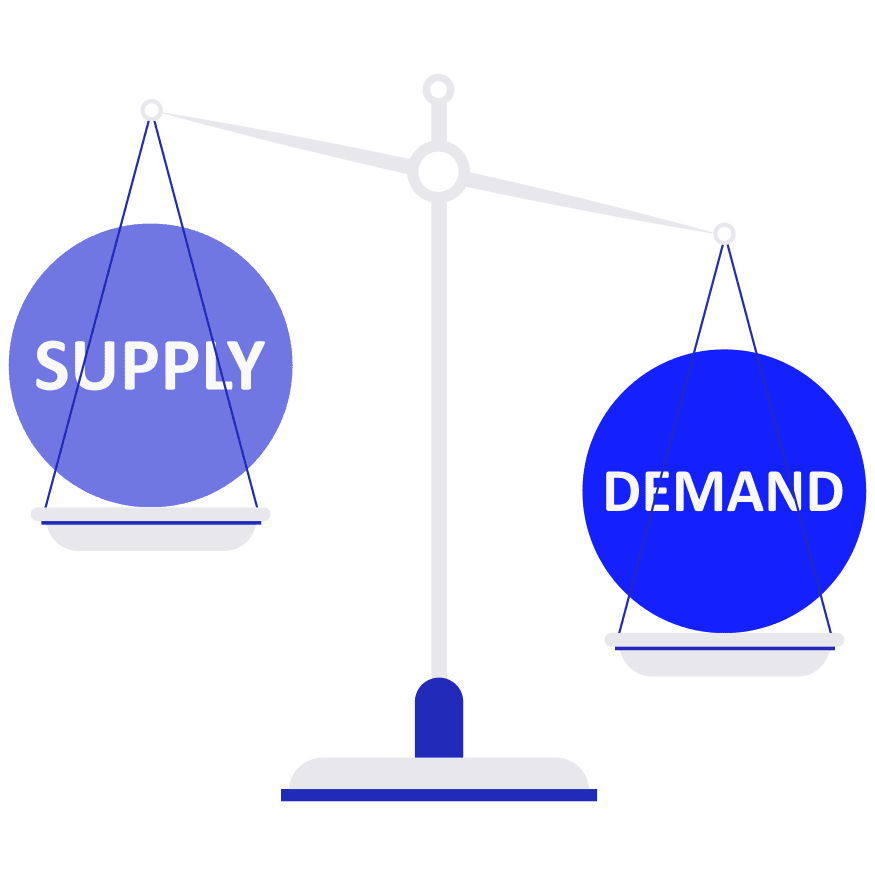A Journey to Finished Goods Excellence
The key to a flourishing business resides in the adept management of finished goods. This guide is a comprehensive exploration of indispensable strategies, meticulously designed to streamline production processes, amplify operational efficiency, and ultimately propel the overall performance of the business to unprecedented heights. By unraveling the intricacies of effective finished goods management, businesses can not only meet but exceed the demands of a dynamic market, positioning themselves for sustained success and growth.
Forecasting and Demand Planning
The crux of sound finished goods management is precise forecasting. This entails scrutinizing historical data, market trends, and customer behavior. Utilizing advanced forecasting tools and collaborating with sales and marketing teams allows businesses to align production seamlessly with actual market needs. The ultimate goal is accurate demand prediction, ensuring that production consistently meets and exceeds customer expectations.

Inventory Optimization
Achieving a delicate equilibrium between preventing stockouts and minimizing excess inventory stands as a critical determinant of success. The implementation of just-in-time (JIT) practices becomes instrumental in this pursuit, acting as a strategic tool to reduce holding costs and enhance cash flow. The ongoing process of regularly reviewing and adjusting safety stock levels, responsive to evolving market conditions, becomes imperative for maintaining optimal inventory management. This strategic approach not only guards against potential disruptions but also ensures the agility and efficiency of the supply chain, allowing for a responsive and streamlined operation.
Quality Control
In finished goods management, ensuring quality is non-negotiable. Implementing rigorous quality control measures throughout the production process is paramount to mitigate defects and ensure that only top-tier products reach the market. Strategic investments in technology, such as automation and IoT sensors, enhance the precision of quality checks, guaranteeing a consistent level of product excellence throughout the manufacturing process.
Efficient Production Scheduling
Crafting optimized production schedules aligned with demand forecasts is an art. Utilizing production management software streamlines workflows, diminishes downtime, and enhances overall efficiency. This ensures that the right products are produced in the right quantities precisely when the market demands them, resulting in a more responsive and agile production process.#ProductionScheduling
Supply Chain Visibility
Augmenting visibility across the entire supply chain is a key enabler of success. Leveraging technology and data analytics to track the movement of finished goods from production facilities to distribution centers, and ultimately to retailers or end customers, provides real-time data. This aids in informed decision-making and allows for the prompt resolution of potential bottlenecks, contributing to a more transparent and efficient supply chain.
Collaboration and Communication
Effective collaboration and communication between different departments involved in finished goods management are essential. Establishing seamless communication channels among sales, production, and logistics teams enables agile responses to changes in demand or supply chain disruptions. This synergy ensures that the entire organization operates cohesively toward common goals, fostering a culture of responsiveness.
Technology Integration
The incorporation of cutting-edge technology solutions, including advanced Enterprise Resource Planning (ERP) systems, emerges as a cornerstone in finished goods management. This holistic integration spans crucial facets such as order processing, inventory tracking, and demand forecasting, fostering a cohesive and interconnected operational system. Leveraging the power of AI cognitive intelligence further elevates this integration, facilitating the extraction of information and streamlining processes for invoices, Bill of Entry (BOE), and other essential documents. This not only enhances accuracy but also significantly reduces manual errors, thereby amplifying the overall efficiency in the management of finished goods.
Supplier Relationship Management
Building robust relationships with suppliers is foundational to establishing a reliable and efficient supply chain. Through transparent communication, negotiated lead times, and mutually beneficial agreements, businesses cultivate a collaborative and resilient network with their suppliers. Regular assessments of supplier performance serve to ensure consistency and uphold the stringent quality standards expected in the supply chain. Our platform which is meticulously crafted platform facilitating the entire procurement journey, encompassing RFQ, reverse bidding, bidding processes, and efficiently managing diverse purchase orders with varying line items.
Compliance and Regulations
In the complex realm of raw material procurement and finished goods management, meeting consumer expectations is crucial. Proactively anticipating and adapting to evolving regulations is vital for success. For international businesses, navigating customs rules and trade agreements is essential. Filing the bill of entry and shipping bill through Custom House Agents (CHAs) is a pivotal step, impacting the IGM/EGM status and, consequently, your deliverability. Continuous compliance monitoring ensures adaptability to new regulations, fostering a resilient and ethical industry. This approach is integral in navigating the ever-changing global trade landscape, reaffirming the commitment to meeting consumer expectations while upholding regulatory standards.
The journey of effective finished goods management is a dynamic and adaptive process. Regularly assessing and reassessing strategies is critical to staying ahead in the ever-evolving business landscape. Fostering a culture of continuous improvement within the organization involves actively soliciting feedback from various departments and stakeholders. This iterative approach ensures that the organization remains agile and responsive to evolving market dynamics, consistently refining strategies for enhanced performance.
In the ever-evolving landscape of business, mastering the art of finished goods management is an ongoing process. By implementing these comprehensive strategies, businesses can not only optimize operations and reduce costs but also consistently deliver high-quality products. Staying proactive, embracing technology, and prioritizing collaboration are the cornerstones of true mastery in finished goods management, propelling businesses to new heights of success.
